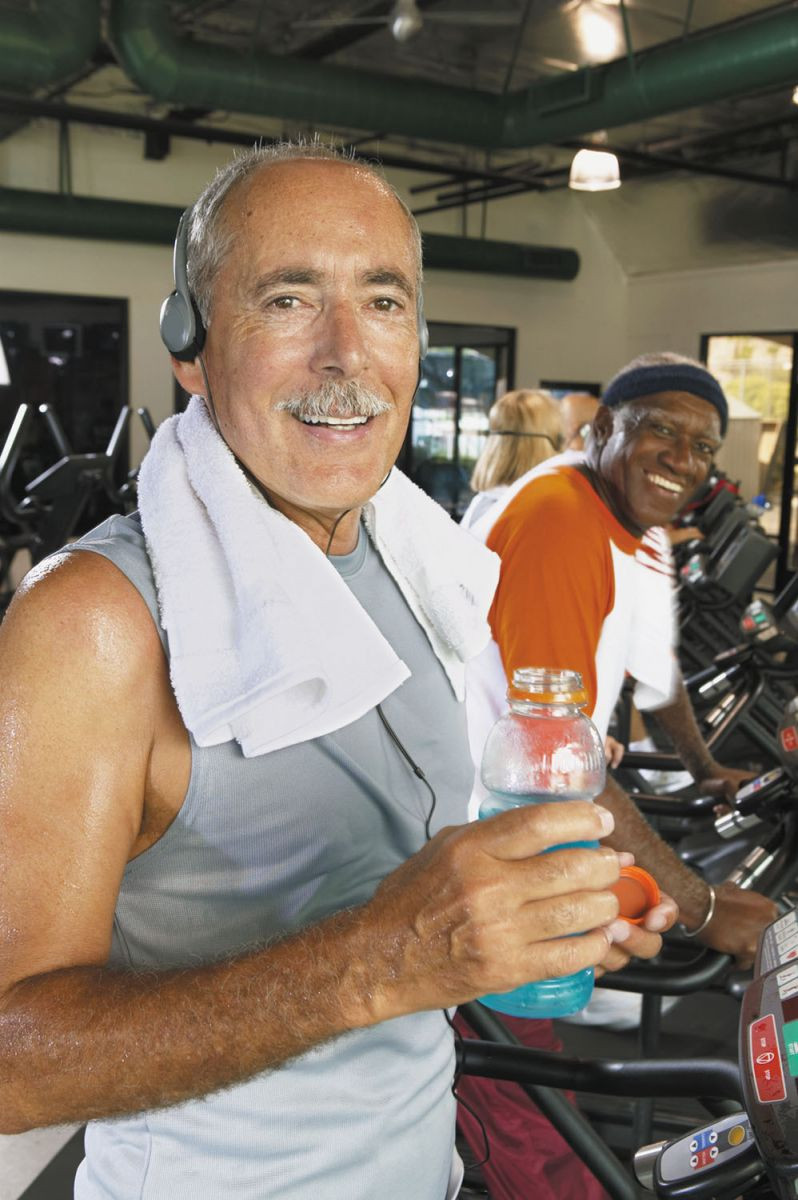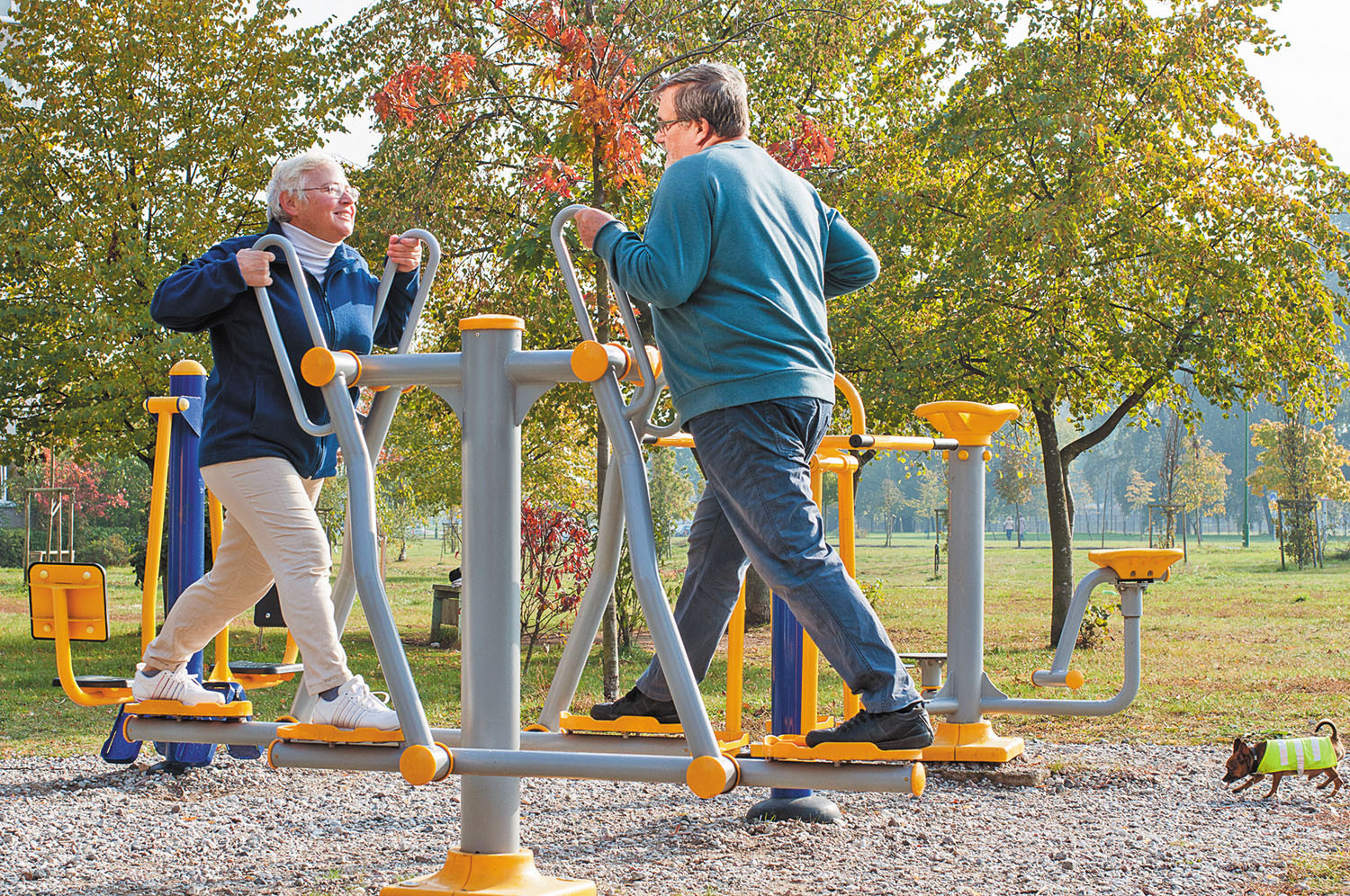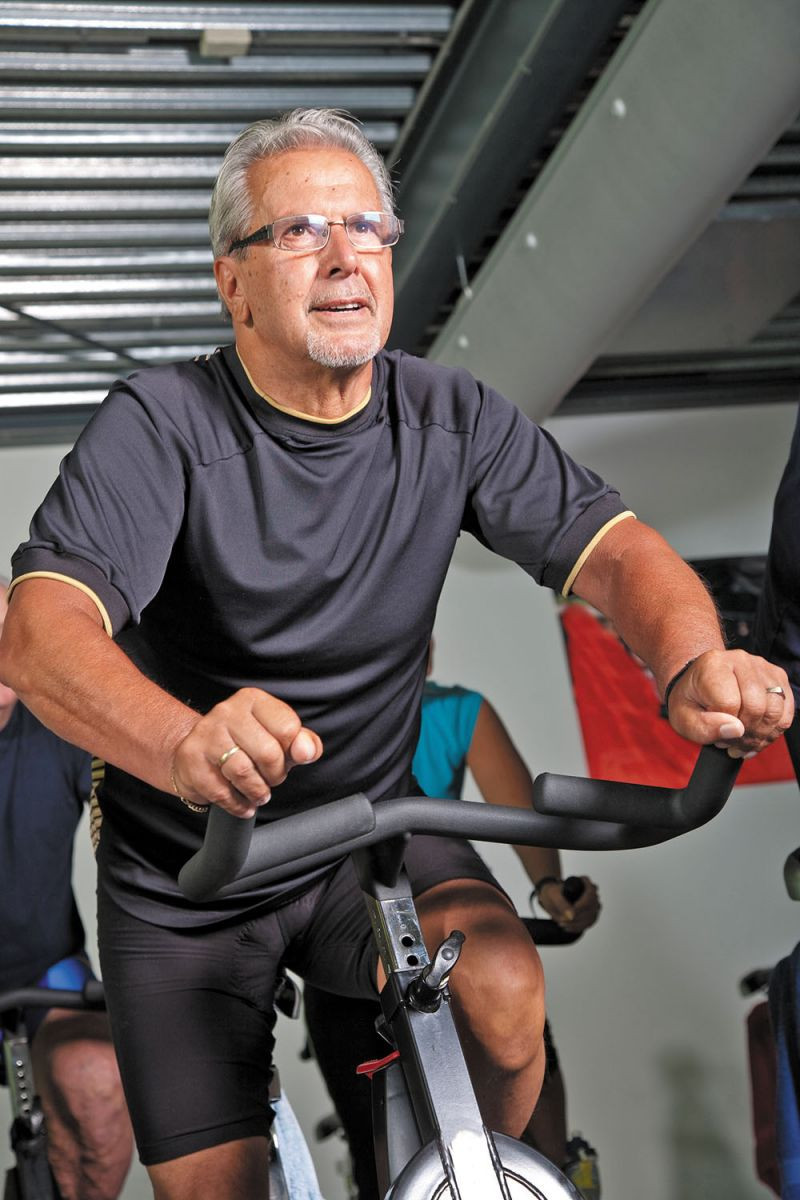
How does prostate cancer treatment affect mental health?

5 timeless habits for better health

What are the symptoms of prostate cancer?

Is your breakfast cereal healthy?

When pain signals an emergency: Symptoms you should never ignore

Does exercise give you energy?

Acupuncture for pain relief: How it works and what to expect

How to avoid jet lag: Tips for staying alert when you travel

Biofeedback therapy: How it works and how it can help relieve pain

Best vitamins and minerals for energy
Exercise & Fitness Archive
Articles
Exercise: Better starting later than never
Research we're watching
Image: © adamkaz/Getty Images
Exercising regularly throughout life is the best way to keep your heart healthy. But starting to exercise even in late middle age may lessen the risk of heart failure, according to a report in the May 15 issue of Circulation. Heart failure, a gradual decline in the heart's ability to pump enough blood to meet the body's needs, affects about 6.5 million people in the United States.
The study involved more than 11,000 people who were part of a long-running project begun in the late 1980s, the Atherosclerosis Risk in Communities Study. Every six years, participants got medical testing and filled out questionnaires about their physical activity.
Lifting weights might lift your mood
In the journals
Aerobic exercise has been linked with reducing symptoms of depression, but resistance training, such as weight lifting and bodyweight exercises like push-ups, can have the same effect.
A meta-analysis published in the June 2018 JAMA Psychiatry examined the effects of resistance training on depression symptoms in 33 clinical trials involving 1,877 people. The researchers found that people who did this type of exercise reported a significant reduction in such symptoms as low mood, loss of interest in activities, and feelings of worthlessness, compared with those who did not exercise.
Want more energy? Here’s what really helps
Do you sometimes feel like the Energizer Bunny with a weak battery? You start out strong, but by midafternoon you're starting to flag.
We all get tired from time to time, but fatigue tends to become more common as we get older. Assuming your doctor has ruled out medical causes for persistent fatigue, there are a few basic steps you can take to feel more energetic day to day.
5 habits for moms that help prevent childhood obesity
It might be surprising to learn that parents can help fight childhood obesity by taking good care of themselves. A new study found that when mothers follow five healthy lifestyle habits, their kids are much less likely to become obese.
How to sneak in more daily exercise
Moving throughout the day offers big benefits for your long-term health.
Image: © Paul Bradbury/Getty Images
There's an old saying: "If you want to stay moving, you have to get moving." But for a lot of us, that's easier said than done.
The Department of Health and Human Services (HHS) says we've become a nation of sitters, and our increasingly sedentary lifestyle has become America's primary health crisis, especially for older adults.
Heart trouble in your family? Exercise may offer protection
In the journals
If heart disease runs in your family, improving your fitness may be a great way to help prevent it, according to a study published online April 9, 2018, by Circulation.
Researchers reviewed data from about 502,000 people, ages 40 to 69, who filled out questionnaires about their current physical activity and family medical history. The researchers also measured the participant daily activity level, grip strength, and cardiovascular fitness.
The benefits and risks of multigenerational fitness parks
Playful exercise is not just about fun and games.
Image: © katkov/Getty Images
One new exercise trend can make you feel like a kid again. Multigenerational fitness parks are cropping up across the United States. These parks typically include a large child-focused structure with places to climb, slide, swing, hang, and jump. There may also be walking paths and places for interaction between older and younger people, such as seating and picnic tables painted with tabletop games (like checkers). Sounds like a regular park, right?
What's different is that the playground equipment is often adult-friendly: swings are sturdy and roomy; slides are wide, with gentle slopes; and seesaws have ergonomically designed seats that are easy to sit on. The equipment makes it possible for adults to play alongside their kids or grandkids or other children.
Exercise still the best approach to prevent falls
News briefs
Image: © Steve Debenport/Getty Images
Regular exercise in older adults offers powerful protection against falls. That's the conclusion of the U.S. Preventive Services Task Force (USPSTF), published online April 17, 2018, by the Journal of the American Medical Association. Task force members reviewed the latest evidence (about 20 studies) and said there was enough to confirm that exercising, muscle strengthening, and improving balance could help prevent falls in high-risk older adults. Most people in the studies exercised three times a week. The benefit remained the same whether people performed individual routines, participated in exercise classes, or underwent physical therapy. The USPSTF also recommended that doctors offer additional measures to prevent falls, depending on a person's risks (like getting an eye exam if you have poor vision). And the task force found that taking vitamin D did not prevent falls in older adults, so it is recommending against taking a supplement just for that purpose. (Vitamin D is important if you have osteoporosis or vitamin D deficiency.) The takeaway: Falls are the leading cause of injury and injury-related death in older adults. If you're not active, try walking a little each day (if your doctor says it's okay), and build toward walking at least 20 minutes per day.
Guard your heart during the dog days of summer
Heat, humidity, and haze can be rough on your heart.
Image: © yacobchuk/Getty Images
Summer's long, sunny days often entice people to spend more time exercising outdoors. While being more physically active is great for your heart, it's important to exercise caution when the temperature and humidity rise.
"You hear stories about football players collapsing when they do strenuous workouts in hot weather, probably because they're not drinking enough fluid," says Dr. Adolph M. Hutter, professor of medicine at Harvard Medical School. However, hot weather can affect non-athletes as well. "For the average person, just walking on a golf course when it's 100° with high humidity is stressful for the cardiovascular system," he says.
Exercise may help outrun a family risk for heart disease
Research we're watching
Staying physically fit helps lower your risk of heart disease — even if the condition runs in your family, a new study finds.
Researchers relied on data from nearly half a million middle-aged and older adults in the United Kingdom. Over the six-year study, people with high levels of grip strength, self-reported physical activity, and cardiorespiratory fitness (as measured by a stationary bike test) were less likely than others to have a heart attack or stroke. That was true even among people with high genetic risk, based on whether they carried certain gene variants that have been linked to heart disease.

How does prostate cancer treatment affect mental health?

5 timeless habits for better health

What are the symptoms of prostate cancer?

Is your breakfast cereal healthy?

When pain signals an emergency: Symptoms you should never ignore

Does exercise give you energy?

Acupuncture for pain relief: How it works and what to expect

How to avoid jet lag: Tips for staying alert when you travel

Biofeedback therapy: How it works and how it can help relieve pain

Best vitamins and minerals for energy
Free Healthbeat Signup
Get the latest in health news delivered to your inbox!
Sign Up











